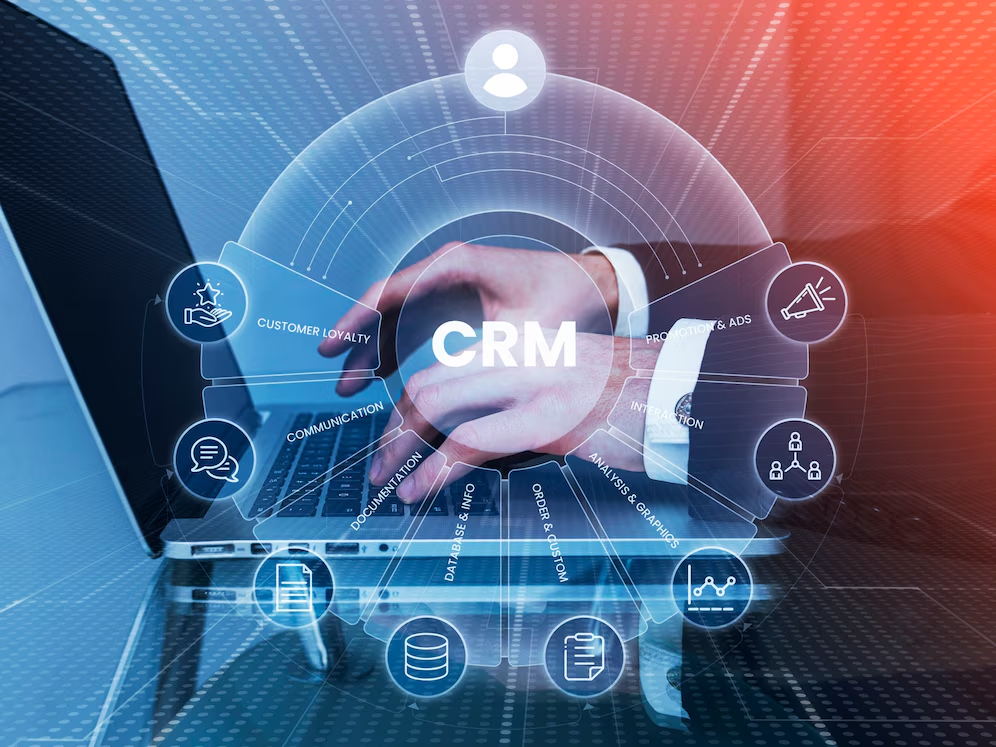CRM Software for Online Customer Engagement
Share

Customer retention is a key factor in the long-term success of small and medium-sized enterprises (SMEs), especially in the competitive e-commerce landscape. While acquiring new customers is important, retaining existing ones is often more cost-effective and leads to higher revenue over time. However, many online businesses struggle with managing customer relationships, engagement, and personalized marketing.
Customer Relationship Management (CRM) software such as HubSpot CRM, Zoho CRM, and Salesforce provides SMEs with tools to track customer interactions, automate marketing campaigns, and enhance customer engagement. For example, an organic skincare brand using HubSpot CRM can analyze purchase history, automate follow-ups, and offer exclusive discounts, leading to higher customer retention and repeat purchases.
This article explores the importance of CRM software for online customer engagement, key features to consider, and how a skincare brand successfully improved customer loyalty using HubSpot CRM.

Why Online Businesses Need CRM Software for Customer Engagement
Managing customer relationships manually becomes increasingly difficult as an online business grows. Common challenges include:
-
Lack of customer data visibility, making personalized marketing difficult.
-
Inefficient follow-ups, leading to lost engagement opportunities.
-
Low repeat purchase rates, reducing long-term profitability.
-
Inconsistent customer communication, affecting brand loyalty.
Key Benefits of CRM Software for Online Businesses
1. Centralized Customer Data Management
-
Stores customer contact details, purchase history, and preferences in one place.
-
Helps businesses track interactions and personalize marketing efforts.
2. Automated Email and SMS Follow-Ups
-
Sends personalized emails based on customer behavior.
-
Automates reminders for abandoned carts, reorders, and special offers.
3. Customer Segmentation for Targeted Marketing
-
Groups customers based on spending habits, interests, and engagement levels.
-
Helps in creating tailored promotions and loyalty rewards.
4. AI-Driven Customer Insights
-
Predicts which customers are likely to repurchase.
-
Suggests best-selling products based on past orders.
5. Multi-Channel Customer Support Integration
-
Connects with live chat, email, and social media messaging platforms.
-
Ensures consistent and responsive customer service.
Essential Features of a CRM System for Online Retailers
1. Customer Database and Interaction Tracking
-
Stores purchase history, email engagement, and service interactions.
2. Marketing Automation and Email Campaigns
-
Automates personalized email sequences and discount offers.
3. AI-Powered Customer Insights
-
Analyzes customer behavior to predict buying patterns.
4. Loyalty Program and Discount Management
-
Tracks reward points and special offers for loyal customers.
5. Multi-Platform Integration
-
Syncs with e-commerce platforms, payment gateways, and social media accounts.
Use Case: Improving Customer Retention for an Organic Skincare Brand
Challenges Faced by the Skincare Brand Before CRM Implementation
-
Low Repeat Purchase Rate
-
Customers bought products once but did not return, reducing overall profitability.
-
Inefficient Follow-Ups and Customer Engagement
-
The brand had no automated system for sending personalized follow-ups.
-
Customers forgot to reorder products, resulting in lost revenue.
-
No Customer Segmentation for Marketing Campaigns
-
The business sent generic promotional emails, leading to low engagement.
-
Customers received irrelevant product recommendations, reducing conversion rates.
-
Limited Customer Service Availability
-
Customers had to wait long for responses, affecting satisfaction and retention.
How HubSpot CRM Solved These Issues
-
Automated Follow-Ups and Reorder Reminders
-
Customers received personalized emails reminding them to repurchase skincare products.
-
Follow-ups were triggered based on previous purchase dates and product usage cycles.
-
Customer Segmentation for Targeted Promotions
-
The CRM grouped customers by skin type, past purchases, and engagement levels.
-
Customers received exclusive discounts and product bundles tailored to their needs.
-
AI-Powered Recommendations and Upselling
-
Based on past purchases, the system suggested complementary skincare products.
-
Increased average order value (AOV) and customer lifetime value (CLV).
-
Live Chat and Social Media Support Integration
-
Integrated customer service with chatbots and social media messaging.
-
Allowed for faster response times and improved customer satisfaction.
Results After Implementing CRM Software
-
40% increase in repeat purchases, due to personalized follow-ups.
-
35% higher email engagement, leading to more conversions.
-
25% growth in customer loyalty program participation.
-
Faster response times, improving customer satisfaction and brand reputation.
How to Choose the Right CRM Software for Your Online Business
1. Assess Your Business Needs and Customer Base
-
Choose a CRM that aligns with your marketing goals and customer engagement strategy.
2. Look for Marketing Automation Capabilities
-
Ensure the system can automate follow-ups, abandoned cart emails, and promotions.
3. Prioritize Customer Segmentation and AI Insights
-
Select a CRM that analyzes customer data to optimize sales strategies.
4. Ensure Multi-Platform Integration
-
The CRM should sync with your e-commerce store, payment gateways, and marketing tools.
5. Evaluate Cost and Scalability
-
Compare pricing plans and choose a CRM that grows with your business.
Common Mistakes to Avoid When Using CRM Software
-
Not Personalizing Marketing Campaigns – Generic emails reduce engagement and conversions.
-
Ignoring Customer Behavior Insights – Data-driven decisions lead to better customer retention.
-
Not Automating Follow-Ups – Delayed follow-ups result in lost sales opportunities.
-
Overlooking Multi-Channel Support – Customers expect consistent service across all platforms.
-
Failing to Integrate with Sales Channels – CRM should connect seamlessly with online store and marketing tools.
Conclusion
For SME online retailers, CRM software is essential for improving customer engagement, increasing loyalty, and driving repeat purchases. By automating personalized marketing, tracking customer behavior, and optimizing loyalty programs, businesses can increase revenue and customer satisfaction.
The organic skincare brand case study demonstrated how a CRM system transformed customer engagement, improved retention, and boosted sales.
Retailers looking to strengthen customer relationships and increase lifetime value should invest in the right CRM software to stay competitive in today’s e-commerce landscape.

Share

Keep me postedto follow product news, latest in technology, solutions, and updates
Related articles
Explore all


